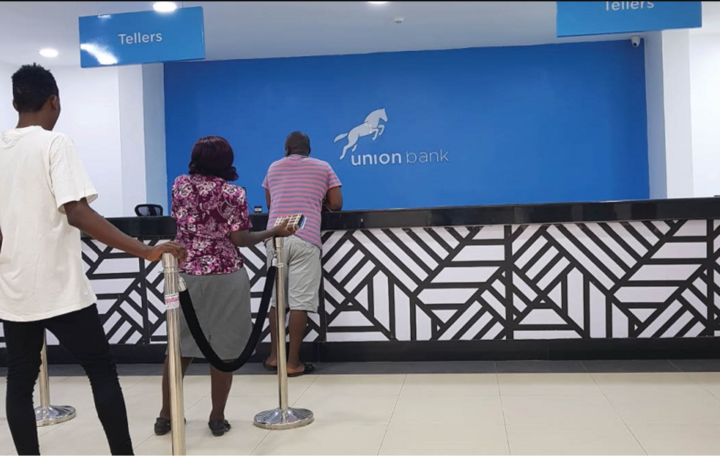Union Bank of Nigeria Plc has successfully redeemed its ₦6.31 billion bond, reinforcing its financial resilience and commitment to prudent debt management in line with its long-term strategic objectives. The redemption, which was finalized this week, marks a significant step toward strengthening the bank’s capital structure and boosting investor confidence in its operations.
According to the bank, the bond, which formed part of its medium-term debt issuance program, was fully repaid at maturity, demonstrating the institution’s ability to meet its financial obligations without disruption. The repayment was made to all bondholders in line with agreed terms, a development analysts say will further consolidate the bank’s reputation for transparency and financial discipline.

Union Bank explained that the decision to redeem the ₦6.31 billion bond underscores its proactive approach to balance sheet optimization. By reducing its debt obligations, the lender aims to improve liquidity, free up resources for more lending, and strengthen its capacity to support Nigeria’s evolving economic landscape.
A statement from the bank highlighted that the repayment also reflects its robust financial performance and strong cash flow management. In recent years, Union Bank has embarked on a restructuring program designed to reposition the institution for competitiveness in a fast-changing financial services industry. The successful redemption of the bond is seen as a milestone in this process.
Chief Executive Officer of Union Bank, Yetunde Oni, noted that the completion of the bond repayment not only demonstrates the bank’s financial strength but also reaffirms its dedication to all stakeholders, including customers, employees, regulators, and investors. She added that the move aligns with Union Bank’s vision of creating long-term value while maintaining a strong and sustainable capital base.
Financial analysts have described the redemption as a signal of the bank’s steady progress in consolidating its market position. In an environment where liquidity challenges and macroeconomic pressures have affected many financial institutions, Union Bank’s ability to meet such obligations is regarded as a positive development. “For investors, the redemption is a vote of confidence. It shows that Union Bank remains a reliable institution with the financial discipline to fulfill its commitments,” said a Lagos-based investment analyst.
The repayment also comes at a time when the Nigerian financial sector is undergoing sweeping changes driven by reforms from the Central Bank of Nigeria (CBN). With inflation beginning to ease and monetary policy adjustments creating room for credit expansion, banks are expected to play a critical role in stimulating growth. Union Bank’s balance sheet restructuring is likely to enhance its capacity to increase lending to sectors such as agriculture, infrastructure, and small and medium-sized enterprises (SMEs).
For customers, the development could translate into more access to affordable credit products as the bank reduces its debt-servicing costs. Industry experts suggest that improved liquidity may enable Union Bank to expand its product offerings and strengthen digital banking platforms, which have become a central focus for Nigerian lenders amid growing competition.
The redemption is also being interpreted as a move to position Union Bank for new opportunities in the financial markets. With the Nigerian Exchange (NGX) showing signs of recovery after recent volatility, and investors demonstrating renewed appetite for quality instruments, Union Bank’s proactive debt management could make it more attractive for future partnerships, capital raising, or market expansion initiatives.
In addition, the redemption reinforces ongoing efforts by banks to align with Nigeria’s long-term financial stability goals. The Federal Government and regulators have consistently emphasized the need for stronger banking institutions capable of withstanding economic shocks while supporting inclusive growth. Union Bank’s successful repayment of its ₦6.31 billion bond is in line with this broader objective.
However, while the development has been widely praised, some experts caution that the Nigerian financial sector still faces significant headwinds. Persistent exchange rate volatility, security challenges, and infrastructural deficits continue to weigh on the broader economy. For Union Bank and other players in the industry, resilience and innovation will remain critical in navigating these hurdles.
Union Bank, which has a long history of serving Nigerian households and businesses, has in recent years prioritized technological innovation, retail banking expansion, and partnerships that broaden access to financial services. The latest bond redemption provides further room for the bank to sustain these initiatives and compete effectively in a dynamic marketplace.
Looking ahead, stakeholders will be watching how Union Bank leverages the freed-up capital following the bond repayment. Analysts believe the lender’s focus will likely include deepening its digital transformation agenda, scaling up customer acquisition, and strengthening its corporate banking operations.
For investors, the bank’s action represents not just a fulfillment of an obligation but also a reaffirmation of trust. With Nigeria’s financial markets entering a new phase of growth and reforms, Union Bank’s ability to manage debt prudently positions it for sustainable success.
In conclusion, Union Bank’s redemption of its ₦6.31 billion bond stands as a landmark moment in its ongoing transformation journey. It signals financial strength, investor reliability, and operational discipline at a time when stability is critical for the Nigerian banking industry. As the nation pushes for stronger financial institutions to drive economic progress, Union Bank’s action provides both assurance and optimism about its future role in shaping Nigeria’s financial services sector.
Support InfoStride News' Credible Journalism: Only credible journalism can guarantee a fair, accountable and transparent society, including democracy and government. It involves a lot of efforts and money. We need your support. Click here to Donate
